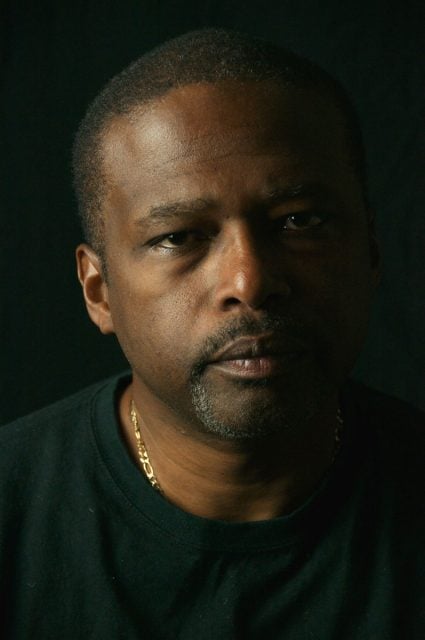
Jeffery Renard Allen interviewed by Mandy Nolan
Jeffery Renard Allen’s novel Song of the Shank was inspired by the real-life story of genius musician and slave Blind Tom, who was the first African American to perform at the White House. A contemporary American masterpiece about music, race, an unforgettable man, and an unreal America during the Civil War era, the novel was a finalist for the PEN/Faulkner Award. I asked Allen about it.
Who was Blind Tom and why were you drawn to him?
Thomas Greene Wiggins was born a slave in Georgia in 1849 and went on to become possibly the most famous pianist and musical performer of the 19th century. Under the stage name Blind Tom, he started giving recitals when he was six years old and at ten he played at the White House, the first African American to do so.
History has been unkind to Wiggins because he is usually characterised as an ‘autistic savant’, and for that reason he is seen not as a true artist and creator. Tom’s life in so many ways speaks to the myriad questions about race, racism, bigotry. So I decided to tell Tom’s story in my novel at a time that is under-represented in fictional narratives.
My novel is set during the time of Reconstruction, one of the great failures of American history and democracy. The legacy of that failure is very much with us today in the ongoing struggle that we face as black people in the USA for justice and equality, for equitable treatment under the law, for fairness and access and education.

Do you think these stories are uncomfortable for white Americans – that history tends to get, dare I say it, ‘whitewashed’, in films and fiction?
Yes, I am sure that many white Americans are uncomfortable with my work because I write from a place of truth as I know it. America is a great country, but it is also a dishonest and hypocritical country that refuses to own up to its past.
A country that slaughtered Native Americans and took their lands from them, an ongoing process of genocide. A country that enslaved millions of black people, then for another century deprived them of constitutional rights and stood by and let home-grown terrorists murder them by the thousands.
That allowed and continues to allow black people to suffer all sorts of deprivations and be denied fair due process under the law. A country that has supported dictators around the world and overthrown governments, then wonders why we have so many enemies.
America needs this slanted belief in its white heroism, and it needs to believe that everybody else is at fault, that everyone else is a ‘loser,’ to quote Donald Trump, the repugnant liar, fraud, and opportunist who is seeking to become our next president.
That said, I am also certain that many white readers enjoy my work for its quality but also because they share my political and social concerns. Still, politics aside, I am first and foremost a writer, and I am writing books for people who like good books. This in and of itself is a tremendous personal struggle of commitment, energy, and sacrifice.
What is the influence of music on your writing? Especially in terms of form and subject?
Black people in this country made their first important and distinctive contributions to art in the form of music. Our literature is still trying to catch up, especially we fiction writers. Perhaps the poets have done a better job since poetry lends itself to music, or at least certain kinds of music.
As for my own work, I am especially interested in how certain musicians layer sound and I strive for the same quality in my work. So I think of something like John Coltrane’s thick sound on the tenor saxophone, tones in the voice of a Bessie Smith, Laila Hathaway, Sarah Vaughn, or Beyonce. I think of Jimi Hendrix’s version of the Star Spangled Banner, not only the famous live performance at Woodstock but also the studio recording that has ten or twelve overdubbed guitars. That’s one of the things I’m striving for, a thickness – of language, of feeling.
But writing can never be music and can never have the directness of feeling of a great song.
I think it’s hard as an artist to really make narratives about black people in America without understanding something about music. Novelist and critic Albert Murray spoke often about what he called the ‘vernacular imperative’, an effort to draw from African American idioms like the blues and jazz and create literature. Ours is a heroic American story, when you consider all that we have faced and continue to face, our struggle. Great literature is about struggle, about trying to ‘make a way out of no way’, as old folk say.
Your first novel, Rails Under My Back, has been re-issued. You are quoted as saying the introduction of crack cocaine into black communities in the 1980s represented an ‘apocalyptic moment’. Can you elaborate a little more?
I grew up black and poor in Chicago in the sixties and seventies, a time that certainly had its problems. However, the crack epidemic brought an unprecedented level of violence, despair, and desperation to the world that I knew, and to the vast majority of black communities across America. That was our apocalypse, which coincided with the AIDS epidemic that continued into the nineties.
The weird thing is that this real but almost speculative world saw very little representation in serious arts. There were of course tons of bad movies, along with plenty of bad music, gangster rap, that glorified violence and drugs, so that was the challenge I gave myself from the standpoint of an artist.
• To read the full interview with Jeffery Renard Allen go to Byron Writers Festival blog at www.byronwritersfestival.com.
• This interview is from the Byron Echo‘s liftout feature from this week’s issue.
Download PDF (7MB)



